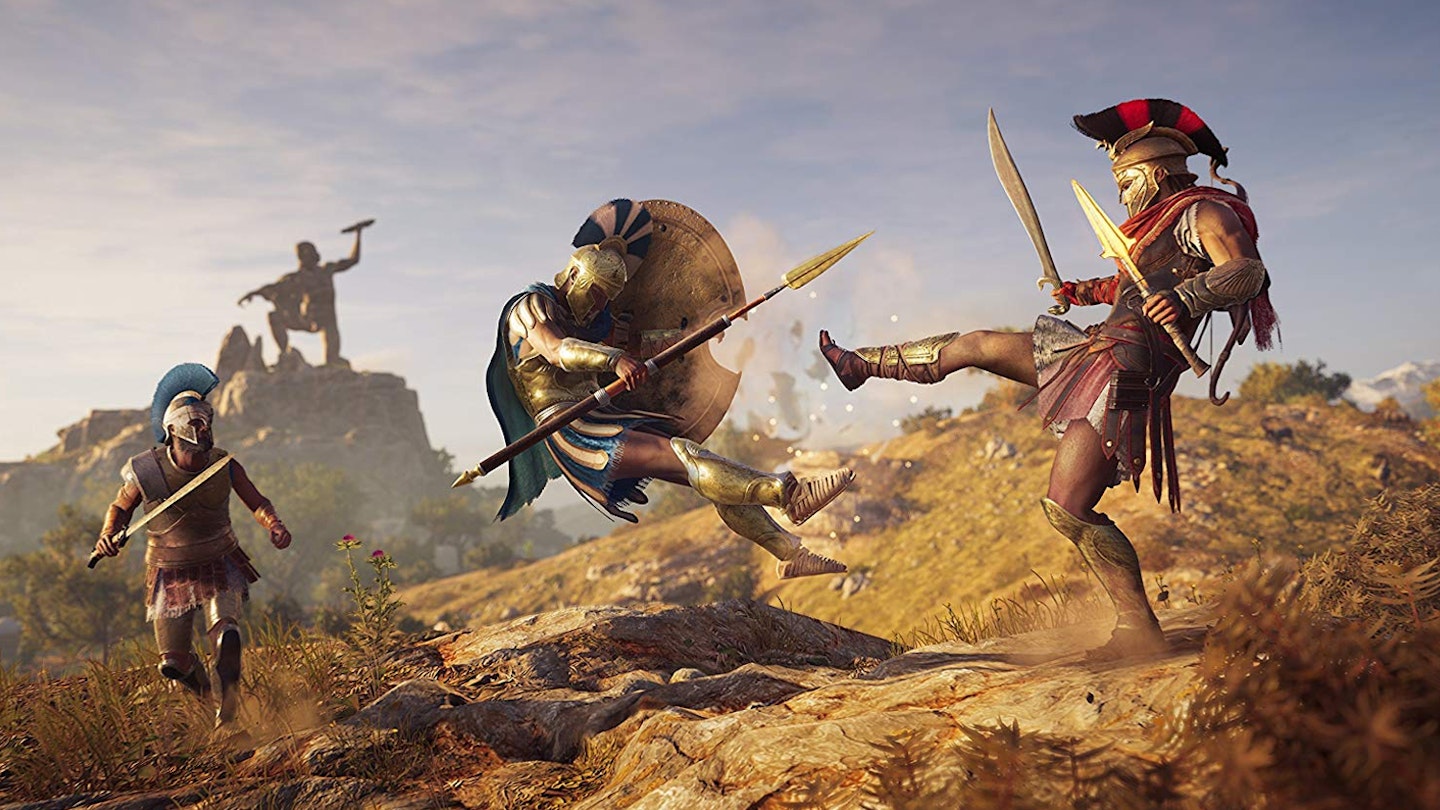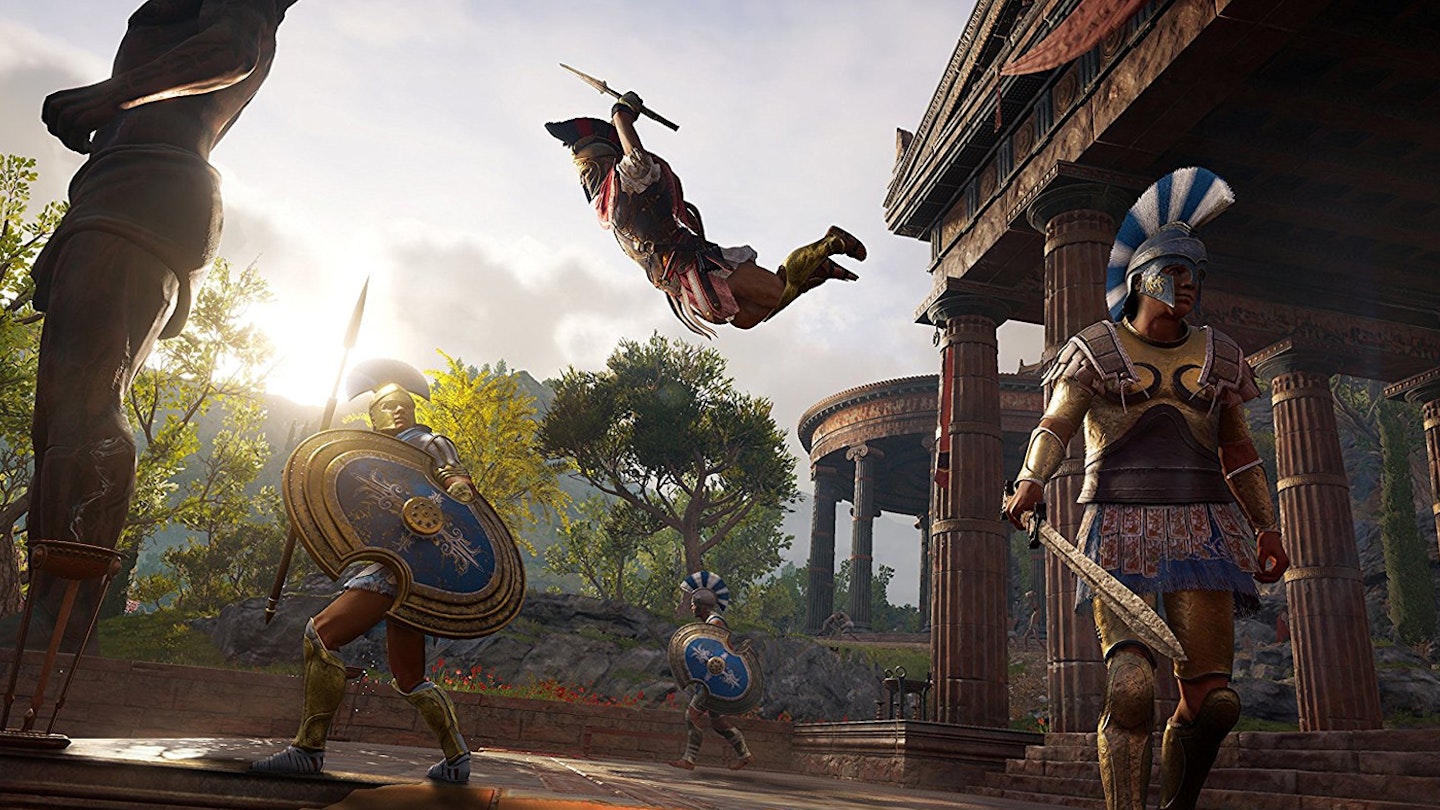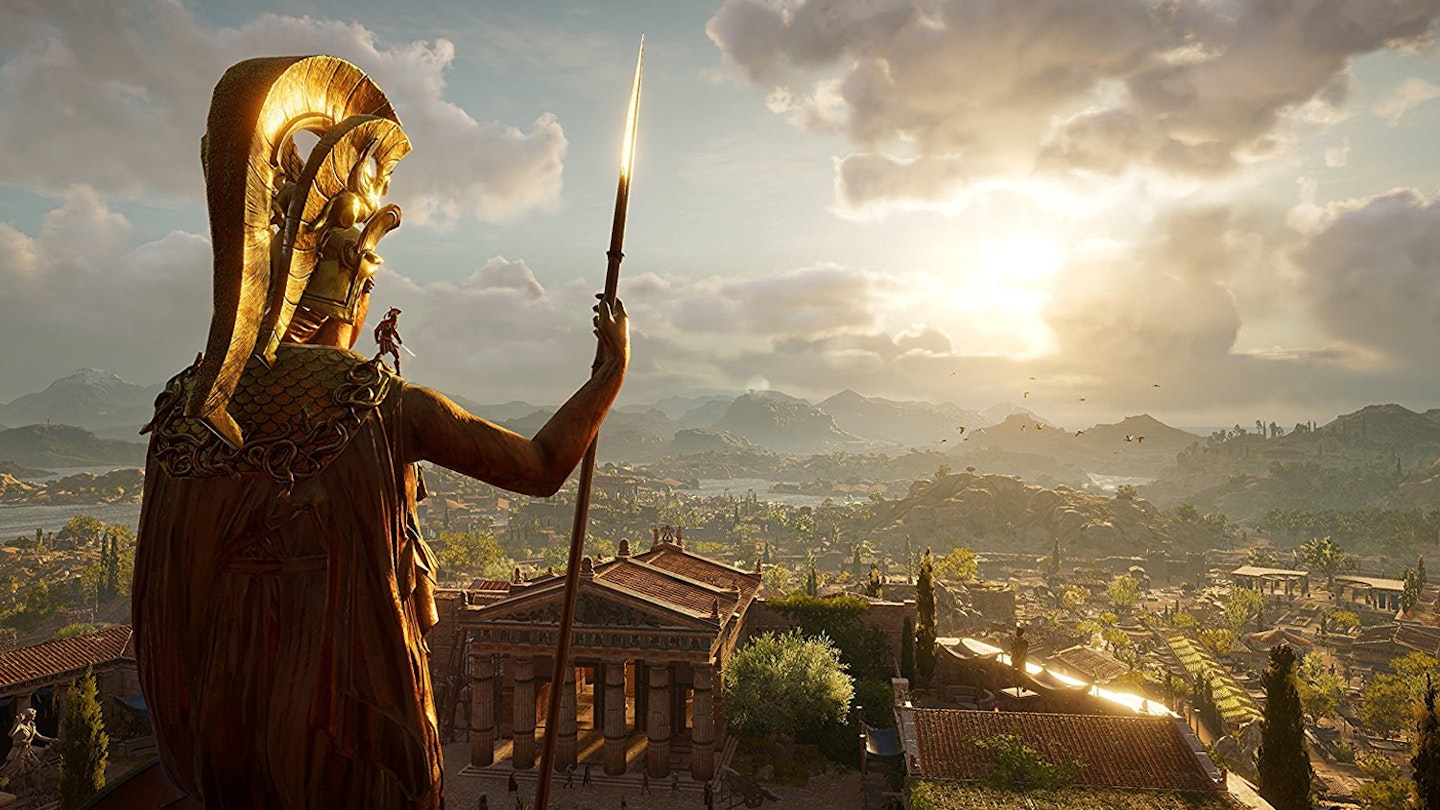After reimagining the franchise with last year's Assassin's Creed Origins, this year's outing completes the transformation of Ubisoft's premiere series into a full blown RPG.
Odyssey is Assassin's Creed by way of The Witcher III, a fully-realised world where decisions matter and nothing is laid out for you. At least, not if you play in the recommended Exploration Mode, which makes the Ancient Greek setting a world full of mysteries to uncover by removing the typical guides and markers of past entries. For traditionalists, there's also a Guided Mode, which plays closer to earlier Assassin's Creed games.

Playing as either Kassandra or Alexios – either way, an abandoned child of Sparta who starts the game eking out an existence as a mercenary – you'll encounter key historical figures as you become embroiled in the Peloponnesian War. The path of that war is far murkier than history tells us though, and you'll be able to ally yourself with either the Athenian Delian League or the Spartan Peloponnesian League as you progress. That freedom of choice is found throughout the game, from dialogue choices that affect how supporting characters see you, to decisions that alter events in the later story, or a full slate of romance options.
Ubisoft's take on Ancient Greece is stunning, both in terms of visuals and ambition.
Despite the greater freedoms, mechanically Odyssey still feels like an Assassin's Creed game at heart. Exploration still favours parkour and climbing over every obstacle imaginable, finding vantage points to scout out vast areas returns, and you'll typically find stealth is the best approach to combat. More recent additions from Origins return too, such as having an eagle companion to scout out surrounding areas. It even retains the modern day sequences, with characters diving into genetic memories through the Animus machine, although as the series progresses these feel increasingly perfunctory; a way to explain 'desynchronisation' when your character dies more than a pivotal part of the experience.
Bigger changes can be found in combat, with your character having a range of more direct battle skills, upgradable through a skill tree. You'll gain an ability point for each level up – a core RPG attribute – and channel those into some of the series' more interesting abilities to date. Archery in particular gets an almost fantasy-level power boost, with one upgrade allowing you to fire arrows through solid objects.

However, the levelling system is brutally slow. Hitting level five – the minimum to defeat the first of many bounty hunters that will stalk you through the game – takes hours, and discovering new locations or killing bandits offers tiny amounts of experience. A scarcity of side quests early on offer just enough experience to make gains, and will only help you get off the first island.
The tilt into a numbers-based RPG also brings with it a downside – the emphasis on stats and power levels means you can't always assassinate enemies in an Assassin's Creed game. If a target is a higher level than you, or you don't have sufficient quality gear equipped to boost your own parameters, then what should realistically be a killing blow – a dagger to the throat, an arrow to the head, or any number of grisly dispatches – only damages your enemy, triggering active melee combat. It's frustrating, especially if you're trying to go for a stealth play.
It's a forgivable sin though, when the rest of Assassin's Creed Odyssey is so captivating. Ubisoft's take on Ancient Greece is stunning, both in terms of visuals and ambition. A historical high point for the series.
